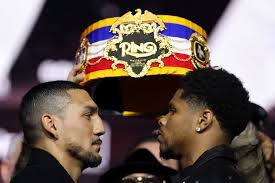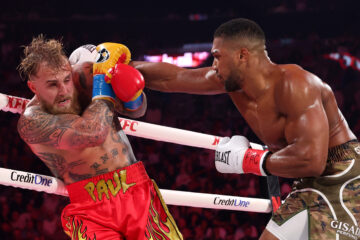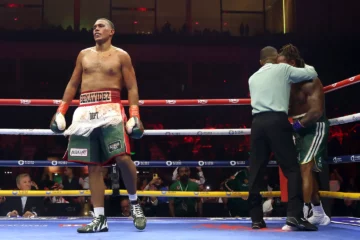On Kazakh Machismo and ‘The Big Drama Show’

There is a dating game in Kazakhstan that couples play on horseback. Given a head start, the woman gallops towards a finish line while the man is obligated to catch up and forcefully kiss her while in full stride. Failure for the man results in the woman whipping him in shame. Meant to be innocent fun, this game is both an allegory for and precursor to marriage in Central Asia, which traditionally happens by kidnapping the bride-to-be. To put it mildly, this “kidnapping” blurs the lines of consent, as it is a crime condemned by probably every moral authority that has ever existed. But at the same time, the kidnapping is also a ritual performance where everybody seems to know their role in this social drama. The groom enlists his friends and conspires with the bride’s friends to conduct the crime. The bride kicks, screams, and resists for hours if not days, while the women of the groom’s family try to calm her down. All the while, the elder men of both families are called on to mediate the situation over tea and a dowery is negotiated. The bride ultimately submits to the groom.
Kazakhstan is a faraway place both in terms of distance and culture. Traditional gender roles are strictly enforced, and bending these rigid norms are challenged at the highest levels. Joanna Lillis details in her book Dark Shadows how the PR Firm Havas was unceremoniously kicked out of Kazakhstan after running a local ad for a gay nightclub in Almaty depicting the Russian poet Alexander Pushkin and Kazakh composer Kurmangazy Sagyrbayuly exchanging a passionate kiss. This incident reached the highest levels of the Kazakh legal system and was reminiscent of Vladimir Putin’s mandate to ban “homosexual propaganda” for the sake of protecting Russia’s children. Despite holding cozy relations with the United States and the rest of the Western world, Kazakhstan is a country that both culturally and diplomatically orients itself around Russia.
The political system in Kazakhstan is a classic post-Soviet democracy-in-name-only. The government revolves around the ex-Soviet communist official Nursultan Nazarbayev, who until last year served as the country’s first and only president. The resignation was simply an about-face, as he ascended to the loftier title of Chairman of the Security Council to whom the President of Kazakhstan reports. Since the fall of the Soviet Union, Nazarbayev has had undisputed control of the country’s vast oil and natural gas reserves. Unsurprisingly, much of the country lives in dire poverty where a heated home and warm meal could be considered luxuries. Despite the obvious grift, Nazarbayev and his consigliere are genuinely revered people in Kazakhstan because mafia leadership is revered there.
Despite its cultural differences, Kazakhstan remains a remarkably hospitable place. Once a man and his daughter invited me off the street and into their home in the outskirts of Almaty. The day was spent in their beautiful courtyard which was lined with apple trees. The courtyard included a gazebo with silk rugs placed for sitting. The women served tea while the men in the household sipped and feasted while watching boxing on the 85-inch television mounted to one of the gazebo’s wood beams. Inside of the house, there were prominent depictions of two people: Nursultan Nazarbayev and Marlon Brando as Vito Corleone. In the bathroom there hung a hierarchy chart of the Sicilian mafia.
There were three things I learned about Kazakhstan that day. (1) Men and women have their defined roles in the household, (2) men try to run their life as if they were a mob boss, and (3) boxing is king.

Such is the country and culture that Gennady Golovkin comes from. Last Saturday, “The Big Drama Show”, as Golovkin has affectionally become known, put a beating on his lightly regarded Polish opponent Kamil Szeremeta. That much was no surprise. The fight held little suspense or drama. GGG knocked his poor opponent down four times before Szeremeta quit on the stool. What actually caught the attention of the boxing world was Golovkin’s comments on retired boxer Oscar De La Hoya a few days before the Szeremeta fight. Responding to De La Hoya’s proclamation that he could come out of retirement and kick Golovkin’s ass, the Kazakh told the Agence France Presse, “If I got an opportunity to legally kill a person in the ring, I might seize it”. Those who follow boxing know of GGG’s disdain for Oscar, and it is well warranted. However, there is an unwritten rule in boxing that death is to never be spoken of. This is the one sport where it occurs so often. The rule of boxing is to control one’s aggression and use it to strategically score points to win the match. It is not to kill your opponent.
ITR Boxing’s own Lukie Katelle insightfully points out that these remarks are so out of Golovkin’s perceived character, that it forces one to wonder if any of us knew who the real Gennady Golovkin is. Depicted as a baby-faced, happy-go-lucky Mexiphile, Golovkin never came across as mean or sinister outside of the ring. Spending most of his career as a journeyman fighting obscure shows in Germany and continental Europe, Golovkin’s rise to stardom and staggering $60 million earnings over a twelve-month period has largely been portrayed with a positive rags-to-riches spin. Here we have a son of the collapsed Soviet Union achieving the American dream and then some.
On the road to stardom, Golovkin said and did the right things. He smiled for the cameras. He spoke of his love for all things Mexico. In turn, the Mexican-American boxing fans of Southern California, who are the lifeblood of the entire boxing industry, embraced him and loved him. But as Katelle points out in his article, Golovkin is now a made man who is free to say what he pleases. At this point, his net worth bulges north of $100 million, and a slight here or a death threat there will not ruin his prospects in a business filled with blood thirsty sharks. Perhaps what we got from Golovkin during his media rounds last week was a glimpse into the real Big Drama Show.
Does this mean that GGG kidnapped his wife? Absolutely not. It also doesn’t mean that Golovkin aspires to be a mafioso or that he has killed anybody in the past. What we know about Golovkin, however, is that he comes from a town called Karaganda which almost certainly would not even appear on a map of Kazakhstan let alone a map of the world. Once the Soviet Union’s third-largest coal-producing city, Karaganda at the collapse of the USSR was hit harder than most—and that is saying something. Born to a Korean mother and a Russian father, Golovkin grew up poor and isolated from the Kazakh majority. His older brothers got him into fighting, but not much else is known about them other than the fact that they both went off to fight for the Russian army and never came home. Meanwhile back in Karaganda, Golovkin and his twin brother Max made a name for themselves fighting on the streets.
How does a young man in the post-Soviet backwater town of Karaganda emerge to fight and win a silver medal at the Olympics and then go on to have one of the most prolific careers in boxing history? If there was any dealing with the devil involved, those stories are long lost. A national hero and cult symbol second only to Nursultan Nazarbayev, any sort of sinister business involving the Big Drama Show is now buried and protected by the Bossman Nazarbayev himself. But maybe, just maybe, studying Kazakh culture gives us a little bit of insight into who this man of mystery truly is.
More from the author:
LIFE GOES ON IN PHILIPPINES AS MANILA SLUMS DISPEL THE CULT OF MANNY PACQUIAO
THE WILD AND BIZARRE BOXING UTOPIA CALLED KAZAKHSTAN
THE FIFTH DIRECTION OF THE WORLD
ON KAZAKH MACHISMO AND ‘THE BIG DRAMA SHOW’
ON RYAN GARCIA’S PAST, HIS PRESENT LOVE TRIANGLE, AND HIS FUTURE
ALSO:





